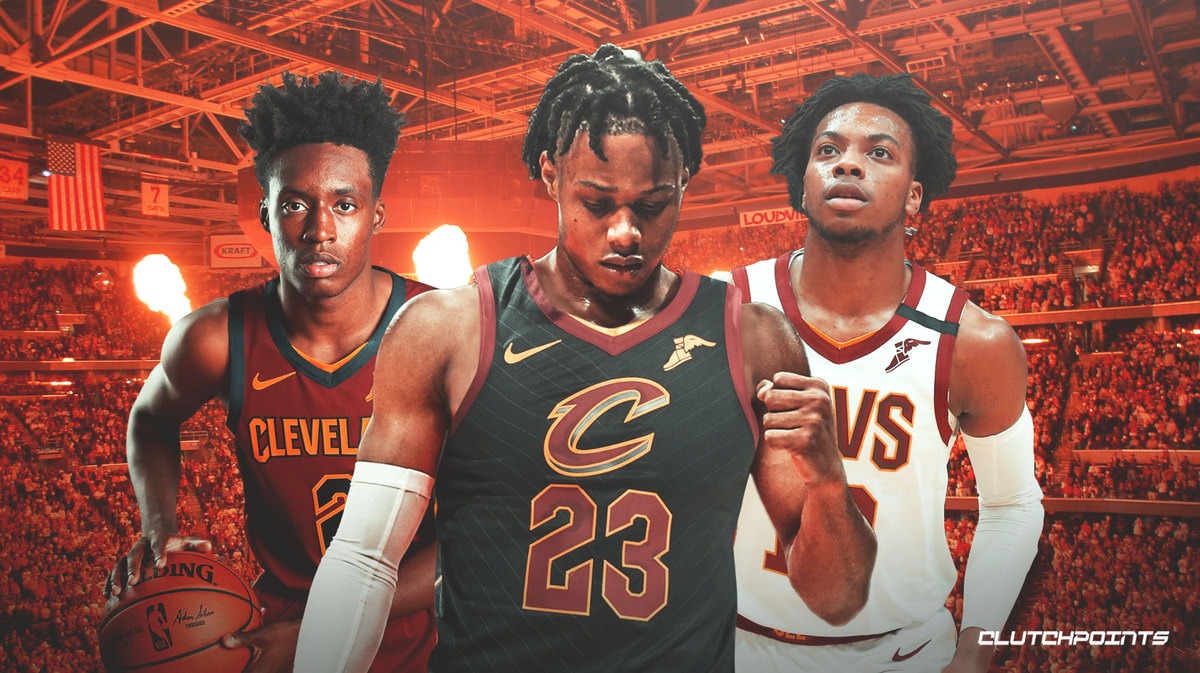The 2020 NBA Draft is just days away, and next up in this series of Cavs Draft Profiles is Auburn swingman Isaac Okoro, a name that has been consistently linked to the Cavaliers since the draft cycle began. What are his strengths and weaknesses, and how does he fit in Cleveland?
Strengths
Driving
Okoro’s offensive game is driving to the basket. He uses a variety of moves to get to the rim, highlighted by an impressive Eurostep. He finishes well, and although he is clearly more comfortable with his right hand at this point, he can also go left reasonably well. Okoro’s size and explosiveness allow him to take defenders off the dribble and score on a consistent basis. His 12.9 points per game is not a great number, but he should be able to score on the drive in the NBA at a good rate.
Transition
Because Okoro is a good driver, he excels in transition, where he can use his superior physical gifts to just out-athlete opponents. He’s a good dunker and does have the ability to kick out and find open teammates on the perimeter. This is the area where he’ll be most effective as a rookie, because it allows him to just play basketball and not think all too much.
Size and Age
Okoro won’t turn 20 until January, but he’s already got an NBA body at 6-foot-6, 225 pounds. He is well-built and should have little trouble facing some of the more powerful guards in the NBA from a strength perspective. His wingspan isn’t great at 6-foot-9, but it’s not terrible either.
Defense
Isaac Okoro was a very good defender in college, and this is probably why he’s been linked to the Cavs so much, seeing as the team doesn’t have much defensively right now, especially in the backcourt.
He averaged 0.9 blocks and 0.9 steals last season, but even though the numbers aren’t there, the ability certainly is. He can switch onto bigger or smaller players, provide help, and is effective both in the post and on the perimeter. He would instantly be Cleveland’s best backcourt defender and would likely draw the assignment of defending the opposing team’s best guard, and potentially their wing.
Explosiveness
Okoro isn’t overly quick or agile, but he is extremely explosive. His straight-line and vertical burst are impressive, and it wouldn’t be a surprise to see him make highlight-reel-worthy dunks on a nightly basis, especially in transition.
Effort
Part of the reason that Okoro has been such an effective defender is that his motor never stops. He’s an extremely hard worker, and that work ethic has clearly drawn the Cavaliers’ eye, much like Collin Sexton did two years ago. Okoro fits the mold of the type of person the Cavs want to add to their young core.
Weaknesses
Shooting
Right now, Isaac Okoro is a shooting guard who doesn’t shoot very well. He shot 29 percent on 2.5 3-point attempts in 2019, and shot just 67 percent from the free throw line. His shooting form is inconsistent, and his mechanics will need tweaked, despite what he’s said pre-draft.
It’s good that he plays defense, but if Okoro can’t shoot the ball well, there’s no reason to take him in the top five. He had plenty of open looks from deep last season, but often passed them up, and even when he did take them, he didn’t look entirely comfortable. There are some bad misses in his tape, and that just can’t happen on a regular basis in the NBA.
Ball-handling and shot creation
Compounding Okoro’s poor shooting is his inability to create his own shot. As stated before, he lacks the elite quickness and agility of a player like Kevin Porter Jr., who can gain separation at will. Okoro doesn’t have a great handle right now, and also doesn’t show the ability to string together moves or envision a plan of attack. If his driving lane is closed, he can’t re-route and reset, and rarely pulls up off the dribble. That’s a huge concern for a wing in today’s game.
Summary
Isaac Okoro is an intriguing physical specimen with good slashing ability and a tireless defensive motor. He lacks the offensive refinement desired in a top prospect, and with Kevin Porter Jr. on the roster, along with two young point guards, Okoro may not make a ton of sense for the Cavaliers. He’d almost necessitate trading one of Collin Sexton or Darius Garland, but you’d be hard-pressed to find a compelling argument that Okoro is a superior prospect to those two, especially today. Perhaps all the noise surrounding Okoro and Cleveland is a smokescreen (there seems to be quite a few of those around this time of year), as Garland’s name didn’t pop up related to the team until just a few days before the draft.
From a human and cultural standpoint, Okoro makes sense for the Cavs. From a basketball perspective, things are cloudy. The team currently has two young guards with plenty of offensive potential, but defensive questions that may never be answered. But Okoro would just present the inverse; a good defender who lacks a true offensive game outside of transition. If the Cavaliers want to swing for the fences with their No. 5 pick, there will probably be better options available. If they want an (almost) guaranteed role player, again, there will probably be better options. Okoro would give the indication of the team trying to straddle the fence between the two extremes—and that may not work out in the end.
